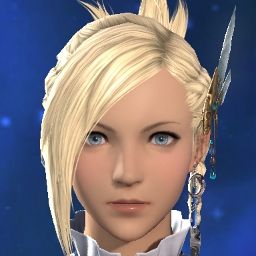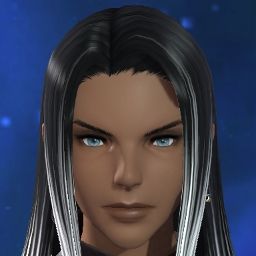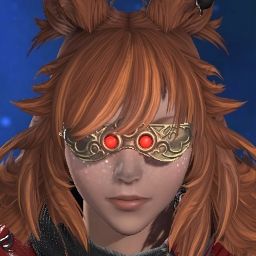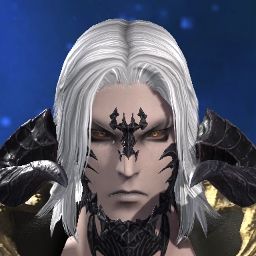-
01-27-2022 07:42 AM #911(6)
Last edited by tokinokanatae; 01-27-2022 at 07:44 AM.
-
01-27-2022 08:00 AM #912
-
01-27-2022 08:20 AM #913
To be less glib, I was pointing out that the framing of the question is in bad faith. Emet-Selch obviously has distaste for his task--a distaste probably only exceeded by his distaste towards the Sundered in general--but he sees what he's doing as returning the world to its natural state. To him, as long as the end result are souls equal (or near enough, if nothing really can be done about the 13th) to the density of Ancient souls, he'll have fulfilled his mission to save the planet. "Destroying worlds" was the only way he knew how to do this. If he could have rejoined worlds by becoming a world class competitive hot dog eater, he would have done that instead.
To answer the question, there isn't really anything ambiguous about "destroying eight worlds", any more than there is anything "ambiguous" about destroying a single one and creating 14 chunks of world in the process. We can only look at what those actions were hoping to accomplish. In both cases, the suffering and pain was a byproduct of the action. The intentions of both were to "save the world." The definition of "save" and "world" just differs.(12)
-
01-27-2022 08:25 AM #914Player

- Join Date
- May 2015
- Location
- Valnain
- Posts
- 827
- Character
- Wind-up Antecedent
- World
- Zalera
- Main Class
- Rogue Lv 100
Y'know, the funny thing about phrasing it that way? There is a story with precisely this POV, though it involves "vampires" instead of "zombies": I Am Legend, a novel written in 1954. It's had three different film adaptations—The Last Man on Earth, The Omega Man, and I Am Legend. They're all worth a watch, though they all take considerable liberties with the source material.
(4)
-
01-27-2022 09:48 AM #915
The reason why I framed it that way is to highlight that, regardless of the point of view, the means do not justify the ends. Emet-Selch wiped out eight planets with untold amounts of people. Not to mention all the cultures and societies he wiped out on the Source. Only Meteion has killed more.
Even though there are plenty of real-life comparisons I could draw from, I'm going to keep this squarely in the realm of fantasy. Avengers: Endgame. Thanos' goal is actually to save the universe. Overpopulation and a dwindling of resources is apparently a cosmic problem. He has a point and I think we all can agree that these are problems on our own world. However, his solution is to wipe out half the population in the entire universe. He hasn't given anyone else a choice in the matter, or even a voice. He has simply come to a solution and acted on it.
Emet-Selch and those on the Convocation who agreed with him, do much the same thing. This is the problem. We can argue semantics and differing point of views all we want, but summoning Zodiark and then initiating Rejoinings does something that goes against the entire foundation of the Hydaelyn-Zodiark story: it does not answer Hermes' question because it removes a singularly important aspect. Choice.
Venat's solution, which is still a very dark option, provides the sundered people with a choice. What kind of world will we build? Humankind will now walk instead of fly. The suffering, the wars, the greed, the strife are all constructs of what humanity has become. It is a deeply flawed and fractured species, but that's the point. The Ancients were near god-like. To them, the very notion of asking "Is humankind worth saving" is, in the words of Emet-Selch, sophistry. Of course they are worth saving. But only their version - the true version - is worth it.
Though we haven't seen the full story, Venat, it appears, did in fact try to reason with the Convocation and seemed to have a faction that helped her summon Hydaelyn. The cutscene showed that.
By sundering the world, humanity, in spite of its imperfections - or because of them - is given the choice to earn the right to live, which thus answers Hermes' question: Is humankind worth saving? Summoning Zodiark, even if that was, ironically, Hermes' idea, does not provide an answer to that question because it only stalls the Final Days, not prevents them. It does not say, "Yes, we have a right to live." It removes the question altogether. That's the whole point of why Venat did what she did.
Again, we can argue whether or not she was right or wrong. We can say she also killed a bunch of people and you won't get much argument out of me there (although she didn't wipe out eight worlds, she in fact created 14). But this is the story as it is written and presented in the game.
This is why I've been calling the plan to summon Zodiark idiotic.(7)
-
01-27-2022 09:55 AM #916
Hol' up, what? You realize the newly created humanity's choice came at the expense of their forbears, right? The Ancients weren't given a choice. The beings born from their sundering did not, in fact, retain those memories. They began in ignorance and built whole new lives and civilizations for themselves. Venat basically hit reset on the entire planet like it was a PS3.
(12)Last edited by Absimiliard; 01-27-2022 at 09:57 AM.
-
01-27-2022 09:59 AM #917
No, actually she did give them a choice. That's why I wrote this sentence: "Though we haven't seen the full story, Venat, it appears, did in fact try to reason with the Convocation and seemed to have a faction that helped her summon Hydaelyn. The cutscene showed that."
Go re-watch the sundering cutscene if you haven't already.
Also, that reset was the point. That's what saved humanity and gave us a chance at fighting and defeating Meteion.(6)Last edited by Lium; 01-27-2022 at 10:04 AM.
-
01-27-2022 10:04 AM #918
The Convocation is not the entirety of the Ancient population. That is fourteen particular Ancients, one of which had become the heart of Zodiark, and another of which (Azem) had left to try and find a third option.
(7)
-
01-27-2022 10:11 AM #919Player

- Join Date
- Feb 2019
- Location
- Ul’dah
- Posts
- 822
- Character
- Eara Grace
- World
- Faerie
- Main Class
- Paladin Lv 100
I’m sorry that you feel you. I can definitely relate to connecting with 14 and it’s community at such a deep level, and disillusionment when that comes up short.
On the matter of Endwalker, if I may, I’d like to offer my own point of view since we are ranting and raving. All of this is subjective, if one wants to argue it I’ll defend my points but I have no interest in telling anyone my feelings are right and everyone else’s wrong.
I will admit, our reactions couldn’t be more opposite.
Where Shadowbringers was definitely an incredible journey, Endwalker and it’s characters/themes/arcs spoke to me in a way few games or media, maybe even; no other piece of media, has before.
For me, what I find so fascinating and emotional are the exact things people find issue with, namely the Ancients and their world, Venat, Meteion, the journey through Ultima Thule, all of it I can genuinely say months later I still love it.
Where that love begins for me is in the stories foundational premise, namely that life, however advanced or beautiful or hated, is destined to end on terms not of its own making. It’s a truth that I find reflected in so much of our own lives. Often we never become what we wish to be, and have our ends come prematurely without reason or cause. The story reflects that, making it clear that even after all our efforts Etheirys is destined to be lifeless, that neither the Ancients nor the dragons nor the Ea nor the Sundered will escape it. As Meteion says:
So often in RPGs or stories there’s a third answer, another choice that achieves everything at little cost. Final Fantasy does this a lot. But here it doesn’t. It doesn’t say to Meteion that she’s wrong, it doesn’t ignore the question, it drives head on into it. Dead Ends works to me because it doesn’t offer a way out or a third option, death and suffering are not defeatable and will return. It’s such a novel concept, a story that says that outright and says it understands why some would give in to despair, to want the end, all without judgement and without portraying those who do as weak or helpless or broken. It looks at all of that and says, “yes that is all true.” And then says “if you want too keep looking however, there’s beauty to be found here.” To say so without patronizing the audience, without glossing over the ugly bits, I can’t help but fall in love.Though worlds apart, these people shared a belief. The belief that they had tried their best.
On the question of moral ambiguity, I much preferred Endwalker to Shadowbringers. As human as Emet felt to me, as understandable as his desires were, at no point did I feel his actions engendered or deserved ambiguity. He was evil, his actions only defensible by denying the very humanity of those he was acting upon. There was no ambiguity to me, his desires were for his own benefit, at the cost of others, and thus at the end did I not feel sad for the man he became, only what he was and for the love he clearly had for his people. When I compare that to Venat, an altruistic hero acting for the right reasons, on a path limited only to horror and pain and suffering, I cannot help but find myself moved more by the latter. And, I mean, just look at this thread. I’ve argued up and down that Venat made the right choice, a position I believe in, but nearly 100 pages of discussion shows the issue is not one sided. Even if I hate to admit it this is indeed what moral ambiguity looks like. Strong feelings, diametrically opposed, with either side saying full throatedly that they are right. Despite my strong stance I still look for other options, try to consider what others are saying in finding another way, and yet my own, totally subjective viewpoint is that she was right. And many disagree. And that’s honestly amazing! Even as someone that thinks it was the right choice, I still don’t like that a character that I sobbed at meeting and getting to spar with was the one who had to do it. That to me is the moral ambiguity Endwalker brings. Painful, ugly, yet necessary decisions born from the best desire to love all. As Venat says:
Anyway, I just felt that this was the point where offering my own positive viewpoint on the story wouldn’t be too soapboxy. I completely respect the fact that you and others disagree, and I’m sorry that that disagreement has made you feel disconnected from the community.They are my meaning, and my purpose. My love.
In spite of, or perhaps because of this, I choose to believe. In Mankind’s potential. In his ability to find a way forward.(5)Last edited by EaraGrace; 01-27-2022 at 10:16 AM.
-
01-27-2022 10:12 AM #920
I don't understand how you can frame things in "choice" vs "non choice" and come to the conclusion that Emet-Selch is the one that is the one invested in non-consent. Note, this is not a "good" or "bad" aspect of Emet-Selch, it just literally is. Emet-Selch is actually huge on consent. (Just not informed consent.)
Let's actually break this down.
The Ascians do not actually rejoin Shards by shooting lasers at the populace in the aspect they are trying to tip the Shard towards. Their plans always involve working with the population of said Shard and the Source to achieve their ends. They also don't tend to literally lie outright--though they certainly lie by omission--instead offering their chosen target something that will serve the interests of both parties. We can see this in the Vauthry scene. Emet-Selch doesn't visit Vauthry's mother in the middle of the night, while she slumbers, to inject her with liquid sin eater. He instead approaches the family and speaks to them directly, explaining what he can offer then and what it will entail. Once they accept the devil's bargain, Emet-Selch then does what he says he would--probably with a sardonic curl to his lips as he once again finds the justification he wants in allowing the "half men" to be the agent of their own eventual demise.
Venat, on the other hand, lies to us pretty much constantly. She lies about the origins of Zodiark and Hydaelyn to us. She lies to us about how much power she has, what she is capable of accomplishing with that power. She allowed Hermes's lie to Emet-Selch and Hythlodeus to stand. She lies about what will happen when she assumes the guise of Hydaelyn to her followers. She did not tell us that we were shattered 14 parts of a greater whole to allow that to factor into the "choices" you say she gave us.
Zodiark was the work of elected officials after debate and struggle to save their star. Venat basically hijacked their work as a part of her own plan--a plan she didn't even share with her closest followers--and acted like the act of summoning Zodiark itself was some sort proof of moral deficiency. At best, she just kicked the can down the road 12K years for us to deal with. And if after all that, we couldn't? Well, she left her escape plan to the most isolationist society in the known world--thus practically ensuring the people that would be able to board her ark were limited at best--and the remaining six planets were shit out of luck. Looks like she valued their lives in the worst case scenario about as much as the Ascians did.(12)






 Reply With Quote
Reply With Quote








